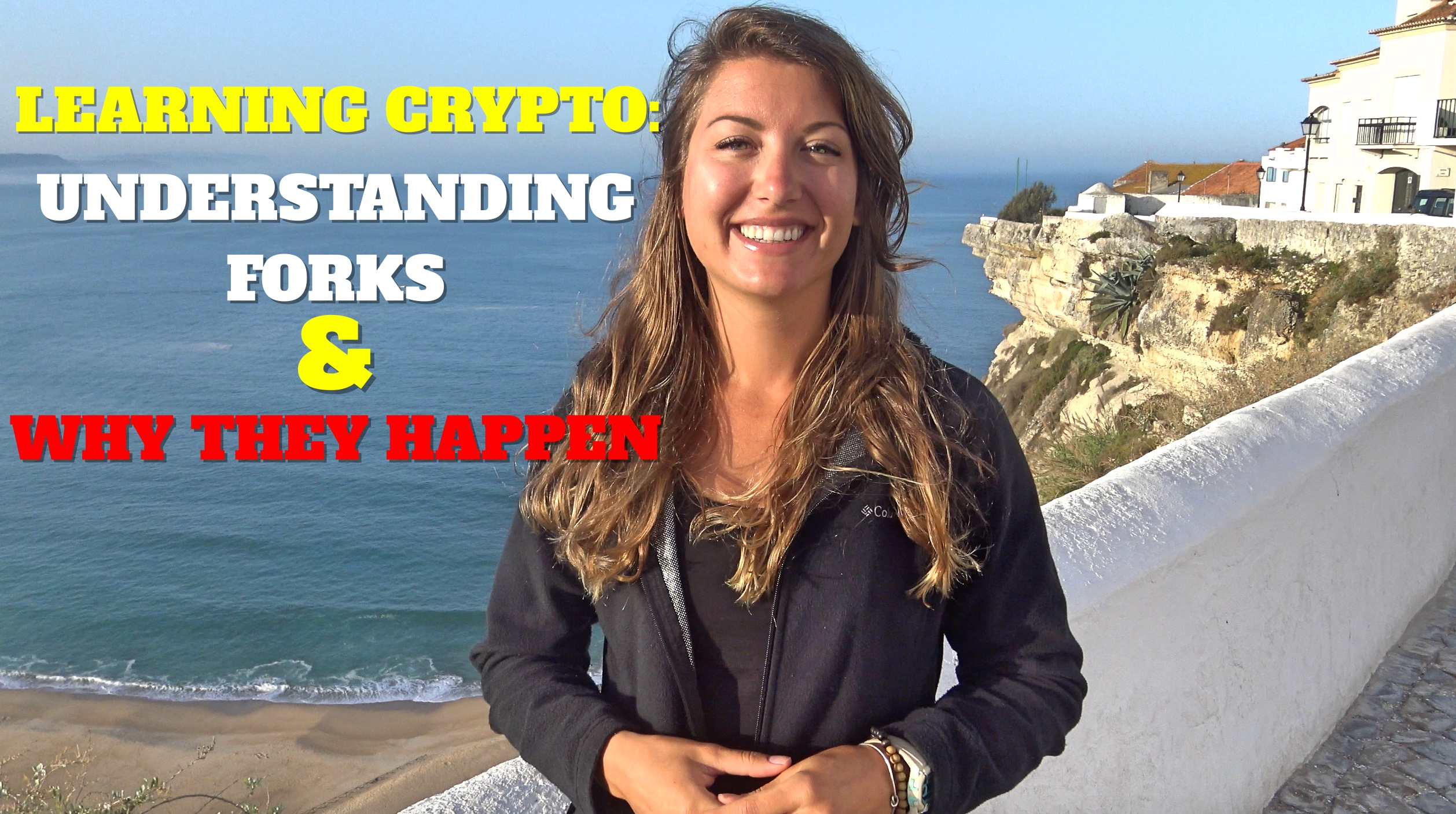Learning Crypto: Understanding Forks and Why They Happen

In my last Learning Crypto video I explained a blockchain.
Now I want to talk about what can happen to a blockchain during a fork.
Also let’s take a look at the different types of forks and why they happen in the first place.
Blockchain forks have been happening for a while now. Contrary to what we’ve been experiencing with Bitcoin the past few months, forks don’t always result in a split of that blockchain.
Generally speaking, forks can happen for a couple different reasons.
Firstly, the most common type of fork happens when different miners discover a block at the same time. This situation presents two blocks essentially competing for the position of the longest chain.
This fork doesn’t result in a split of the blockchain because it is resolved once the next block is added to one of these competing blocks and not the other. Wherever this newest block is added will determine which chain is longest. The longest chain will be considered valid, while the other is invalid, or also called orphaned.
The miner of the valid block will be given their block reward while the miner of the orphaned block will receive nothing.
Now let’s take a look at a couple different variations of forks: Soft forks and Hard forks.
Unlike the forks described earlier, soft forks and hard forks are results of decisions made by the network of the blockchain.
As their name suggests, these variations are different based on the severity of the changes they will impart on the blockchain.
Soft forks are commonly referred to as backward compatible, or also, a tightening of the rules.
Basically this means that soft forks happen when the network wants to make changes to the rules of their blockchain that will enable nodes that do not upgrade to still agree on the new rules and still consider the new blocks to be valid.
Hard forks change the rules of the blockchain in such a way that requires all nodes to upgrade.
The consequences of not upgrading will result in miners creating blocks that the upgraded nodes will consider invalid, resulting in them missing out on block rewards.
A blockchain splits when a hard fork occurs and for whatever reason, but most of the time the reasons seem to be political or philosophical, a group of miners, nodes and developers decide to continue mining, validating and building onto the chain with the original or older set of rules.
This can be seen with the split of the Ethereum blockchain. This particular split resulted in the continuation of the original blockchain with it’s corresponding cryptocurrency called Ethereum Classic. Ethereum is the chain that decided to change the rules- in this instance it was in regards to past transactions.
A blockchain can also split when a group of miners, nodes and developers have decided they want to change the way that blockchain should work.
They take it upon themselves to create new rules, and split from the original blockchain to pursue their own goals. This can be seen with the latest Bitcoin Cash and Bitcoin Gold hard forks.
You can also find me on:
Twitter: @blockchainchick
Youtube: Crypto Tips
Instagram: hheidiann
Additional Reading/Sources:
Invalid Blocks
Soft Fork Defined
Hard Fork Defined
Ethereum & Ethereum Classic Split
Philosophy of Ethereum Classic
Bitcoin Cash Hard Fork
Bitcoin Gold Hard Fork
I suppose you can look at contentious hardforks in cryptos as the equivalent of divorces due to irreconcilable differences between couples.
Once the consensus in the relationship is gone, divorce is the result.
Are those pictures in Spain Heidi?
You have explained it well, @heiditravels. Thanks for this info. Upvoted, followed and resteemed. :)
I just figured you REALLY wanted us to understand forks and why they happen ;)
Nice explanation on forks. Thanks for sharing.
This post has been ranked within the top 80 most undervalued posts in the second half of Oct 27. We estimate that this post is undervalued by $14.12 as compared to a scenario in which every voter had an equal say.
See the full rankings and details in The Daily Tribune: Oct 27 - Part II. You can also read about some of our methodology, data analysis and technical details in our initial post.
If you are the author and would prefer not to receive these comments, simply reply "Stop" to this comment.
Thanks for the vid. I'm getting some heat from my anti-crypto friends for these forks. They're saying that the idea that there is a limited amount of btc is bull because every split doubles the amount of btc - if not every time, then at least whenever there is a credible team behind a split like what we have with the 2x guys. Also, I'm hearing a lot of "these forks can potentially happen from here to infinity". I'm having a hard time countering these arguments. What do you think?
thanks for sharing your valuable information regarding forks~~~
I used to think hardforks only occur to improve block capacity and increase transaction speeds! Thanks for the additional insights. Keep them coming.
Nice video. Thank you for sharing!